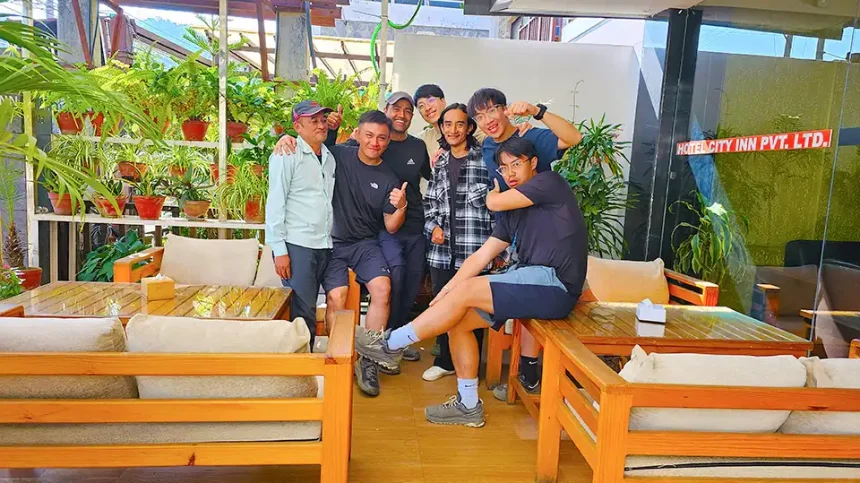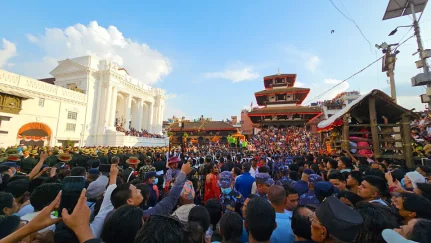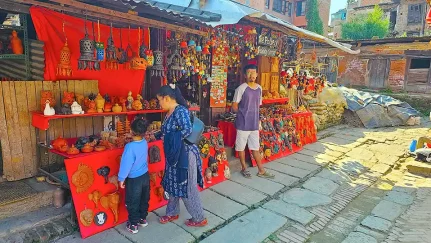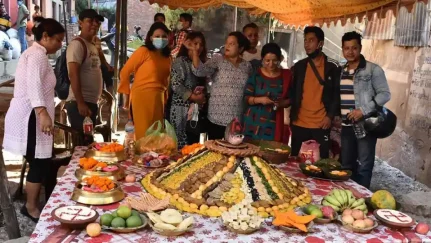How much should Travelers tip carriers and guides in Nepal?
Knowing how much to tip in Nepal, especially when guides and carriers are involved, can be a tricky question. While most of Asia does not have much of a tipping culture, some of the underpaid staff in Nepal rely on tips from tourists for their livelihood.
First, see some travel information to know before visiting Nepal.
How Much to Tipping In Nepal?
The average service worker in Nepal can not expect a tip, partly because of being polite and partly because of a desire to save face.
With that said, salaries can be very low, and many employees work seven long days a week to end the meeting. If the service was excellent, consider tipping 10% as a gesture of gratitude.
A 10% service charge has already been added to the bills in many hotels and restaurants catering to tourists. In theory, this 10% should be shared between staff. As is sometimes the case in Asia, the service charge can only go towards paying basic salaries.
The only way to ensure that a server gets compensation for a good job done is to give a small amount directly to them. Avoid contributing to cultural mutation by tipping when it is not merited! See this list of some other things not to do in Asia.
There is really no custom in tipping the house staff or hotel carriers carrying your bags, although the gesture will surely be appreciated.
When using taxis in Asia, it is common to simply round up your ticket to the nearest full amount. This prevents the driver from having to dig for change and is the best way to leave a little extra.
Realistically, you will not come across many work taximeters in Kathmandu and should agree on a price before getting into a taxi!
Tipping Trekking Guides, Assistant Guides, and Carriers:
Unlike the service staff in town, your hiking staff will probably expect some form of compensation for a job well done. A good guide and team can make or break your hiking experience, with eye-opening, perhaps one of the main reasons why you came to Nepal.
They do not earn much for their hard work and usually rely on tips to survive. Usually, you give the tip to the leader or the guide, and they will hopefully distribute it among the other members of the team (For example, bearers and chefs). The guides should get a little bigger tip than the carriers.
If you make the trip to Everest Base Camp in Nepal, the general rule is to tip one day’s salary per week or 15% of the total cost. Without really knowing what the staff is earning, this can be difficult to decipher. Assuming the experience was excellent, a good rule of thumb is to tip the equivalent of $ 10- $ 15 per day for your guides and the US $8- $ 10 per day for carriers. You can implement this rule on the other treks, like the Kanchenjunga base camp trek and the Annapurna circuit trek.
Along with giving money, you can also leave behind the equipment that you no longer need. If you have purchased gloves or other gear specifically for your hike and are ready to leave Nepal for warmer climates, consider giving your team the extra equipment – they will use it to good use!
See 10 tips for hiking safely in Asia.
How to Tipping In Nepal for Life-changing your staff
Because tipping in Nepal is still not completely customary and can even cause embarrassment in some cases, tips should be given in a discreet manner. Do not show your generosity; instead, put your gift in an envelope or discreetly take the recipient aside. You may find that they simply fill the envelope or indemnity in a pocket without counting or confirming it in front of you.
Always tip in Nepalese rupees – the local currency – instead of currency from your own country. Learn how to quickly find the official exchange rates for a country.
As you tip the hiking staff, show your gratitude on the last night of your trip rather than as everyone says goodbye. Some employees may not be available the next morning and may miss the tip. If you made your trip with other tourists, you can combine money to tip as a group.
Repayment of generosity that provides comfortable Living conditions.
If you happen to be able to eat with a local family or are invited to stay in their home, you should bring a little sense of appreciation. Some gifts can be considered bad form or even bad luck. Ask another Nepalese person for gift ideas.
FAQ Related to Tipping in Nepal
Are gratuities compulsory in this country?
As a matter of fact, other than in some instances like eating places, tipping is not common in most of Asia, yet porters and guides on Nepal trekking rely on tips from the trekking tourists to sustain their needs. Tipping is the most personalized way of rewarding a service provider. In any case, you should only add a tip if it is deserved due to a good performance by the staff.
Can you tip in USD in Nepal?
Tips must be given in Nepalese Rupees, US$, or euros. The trek staff can exchange them at the money exchange available in Kathmandu or the local town.
How much do you tip a mountain guide?
This is an interesting question, and trends vary greatly depending on the region, company, and guide’s rank and years of experience:
When it comes to tips for an outdoor or backcountry guide, it is common to tip $10% – $20% of the tour per client. For instance, if the price of a tour per person was a thousand dollars, then the acceptable amount of tip was one hundred to two hundred dollars paid by the guide.
How much Tips to give a driver in Nepal?
For single travelers, the NRS 500 (USD 5) per day charging would be reasonable. On the other hand, NRS 1000 (USD 10) per day is reasonable for many days with a group on board. You might want to give an additional tip if you are going on a trip that is going to take several days. If the driver is guiding you and moreover provides good services, then usually you feel compelled to offer them a large tip.
Is a 10% tip enough?
While about 10% is expected, more is always welcome. In the case of foods like pizza, the flat tip per item is more reasonable than the percentage tip.
I have had the privilege of leading countless trekkers through some of the world’s most iconic routes, including the Everest Base Camp Trek and Annapurna Base Camp Trek. Every trek is not just a physical journey; it’s an opportunity to connect with nature, immerse ourselves in rich cultures, and create lasting memories.
I believe that trekking is about more than just reaching a destination; it’s about the stories we share along the way. My fluency in Spanish, English, Hindi, and even some Japanese and Korean allows me to connect with trekkers from all walks of life, ensuring that every journey is tailored to your unique desires and needs.





